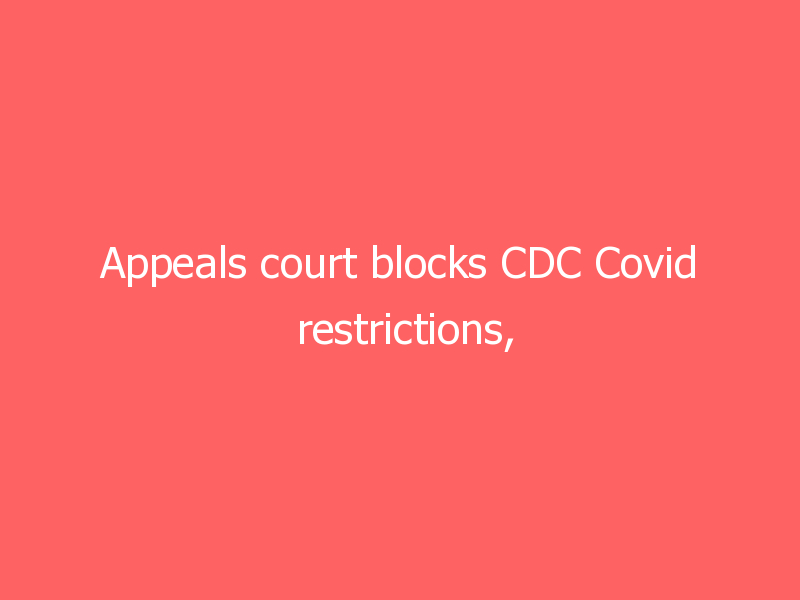WASHINGTON — A U.S. appeals court late Friday blocked federal Covid restrictions that had vastly cut back the number of cruise ships operating from Florida’s ports.
The decision was a win for the state, which filed a lawsuit arguing that restrictions imposed by the Centers for Disease Control made it very difficult for the industry to get going again, after it was shut down for nearly 16 months.
The decision applies only to ships leaving from or arriving at Florida ports.
Earlier Friday, lawyers for the state had asked the U.S. Supreme Court, in an emergency appeal, to block the restrictions. That request now will most likely be withdrawn, because the appeals court gave the state the legal relief it had sought.
Under the federal rules, ships were allowed to board passengers if cruise lines met such requirements as setting up Covid testing labs, running test voyages, maintaining social distancing, and establishing onshore housing for quarantining passengers.
The federal government said the rules were necessary with the United States in the midst of a once-in-a-lifetime pandemic that included several deadly outbreaks clustered on cruise ships. “These experiences demonstrated that cruise ships are uniquely suited to spread COVID-19, likely due to their close quarters for passengers and crew for prolonged periods.”
Now is not the time to put the rules on hold, as the government works with the industry to get it going again, the Justice Department argued — noting that the cruise industry did not join Florida’s lawsuit.
But those rules allowed only a fraction of the normal number of ships to sail, the state said
“The CDC’s order is manifestly beyond its authority,” Florida said. The federal law giving the CDC power to enact traditional quarantine measures “does not permit the agency to remake the entire cruise ship industry.”
The state said the restrictions have cost Florida tens of millions of dollars in lost tax and port revenue and required it to meet the additional expensive of paying unemployment benefits to cruise industry employees.
In June, a federal court agreed with the state and blocked the CDC restrictions. U.S. District Court Judge Steven Merryday of Tampa, Florida, said the effort to impose the rules was “breathtaking, unprecedented, and acutely and singularly authoritarian.” He said he wondered whether the CDC would have argued that it could ban intercourse to prevent the spread of sexually transmitted diseases.
The U.S. Court of Appeals for the 11th Circuit, based in Atlanta, initially put Merryday’s order on hold. But late Friday, without explanation, it reversed itself and said the state “failed to demonstrate an entitlement to a stay pending appeal.”
Originally found on Read More







